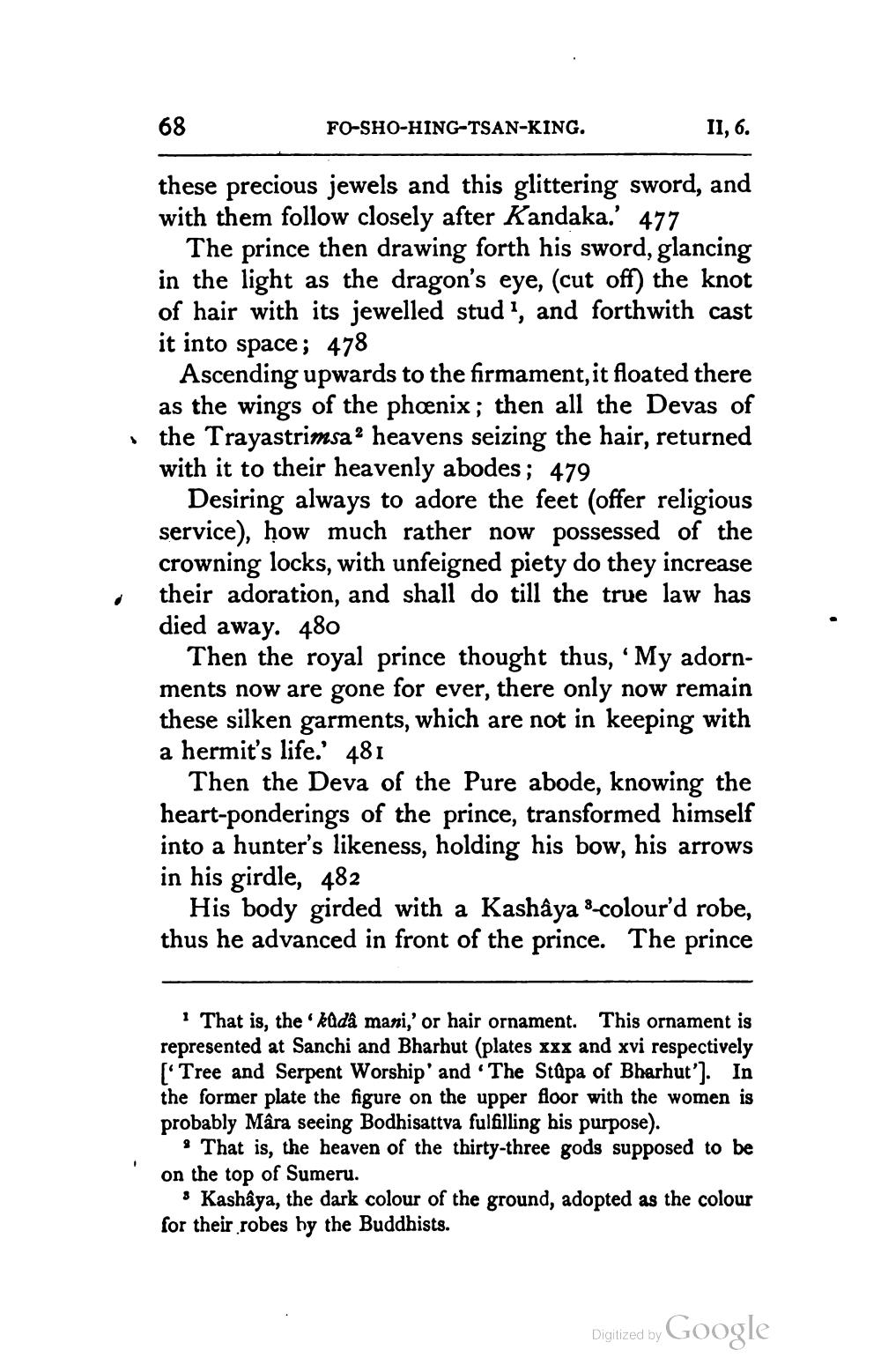________________
X
FO-SHO-HING-TSAN-KING.
II, 6.
these precious jewels and this glittering sword, and with them follow closely after Kandaka.' 477
The prince then drawing forth his sword, glancing in the light as the dragon's eye, (cut off) the knot of hair with its jewelled stud", and forthwith cast it into space; 478
Ascending upwards to the firmament, it floated there as the wings of the phenix; then all the Devas of the Trayastrimsa? heavens seizing the hair, returned with it to their heavenly abodes; 479
Desiring always to adore the feet (offer religious service), how much rather now possessed of the crowning locks, with unfeigned piety do they increase their adoration, and shall do till the true law has died away. 480
Then the royal prince thought thus, ‘My adornments now are gone for ever, there only now remain these silken garments, which are not in keeping with a hermit's life.' 481
Then the Deva of the Pure abode, knowing the heart-ponderings of the prince, transformed himself into a hunter's likeness, holding his bow, his arrows in his girdle, 482
His body girded with a Kashầya 8-colour'd robe, thus he advanced in front of the prince. The prince
1 That is, the .kada mani,' or hair ornament. This ornament is represented at Sanchi and Bharhut (plates xxx and xvi respectively ['Tree and Serpent Worship' and 'The Stapa of Bharhut'). In the former plate the figure on the upper floor with the women is probably Mâra seeing Bodhisattva fulfilling his purpose).
. That is, the heaven of the thirty-three gods supposed to be on the top of Sumeru.
3 Kashấya, the dark colour of the ground, adopted as the colour for their robes by the Buddhists.
Digitized by Google




